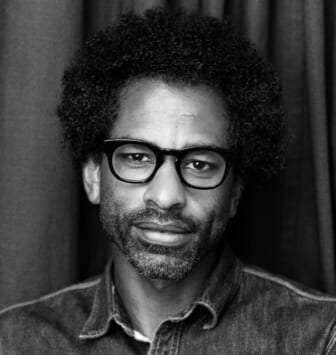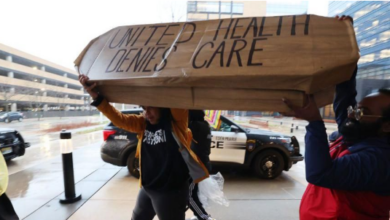‘Atlanta’ review episode three:”What is a D’Angelo?”


Editor’s note: The following article is an op-ed, and the views expressed are the author’s own. Read more opinions on theGrio.
At a critical moment in episode three of the final season of “Atlanta,” Earn asks himself, “What is a D’Angelo?” And it’s a deep question because D’Angelo is one of the most important artists of his era (and clearly one of the inspirations for Childish Gambino’s more soulful music). D’Angelo, to those of us who lived through his rise, represents both an incredible, soulful musician and one who’s frustratingly enigmatic. He made a very good album, “Brown Sugar,” disappeared for years, made a legendary album, “Voodoo”, and then disappeared for many, many years, and we were left wondering when will he return? In a world where many artists put out as much product and content as they can, D’Angelo was one who retreated from his career when we wanted so much more. When Earn goes on a journey to find D’Angelo, it’s an adventure so many of us would like to do. Of course, it’s not a purely altruistic venture. Many people have said that music is one of Black America’s most important natural resources. It’s our oil, a valuable commodity we can extract to make money. Earn wants to find D’Angelo so he can sign him and make money off of him. He wants to commodify D’Angelo for himself which means “Atlanta” is continuing its journey through capitalism.
Meanwhile, Paper Boi is also on a journey into management. But where Earn is trying to sign a Black artist of extraordinary talent and artistic integrity, Paper Boi stumbles into the world of managing young white rappers who are terrible. Yet, because of their whiteness they’re still valuable commodities. He’s in a far less savory avenue of capitalism. Is Paper Boi hastening the gentrification and ruination of hip hop by promoting terrible white artists? Or is he pimping young white artists in the same way that the white leaders of the music biz have been doing to Black artists for decades? Seems like both. It’s all a hilarious turnabout from the beginning of Paper Boi’s journey in this episode where he’s been bought. They even use that word, “bought,” because a Jewish father pays Paper Boi to teach his son how to be Black. The fetishization and commodification of Blackness is a big part of this story. White people hiring Black people to teach Blackness to white people sounds gross. But in capitalism the price determines everything. The price you get to perform a service shows how respected you are. Being asked to teach Blackness for $100 an hour is an insult. Being offered $1 million to teach Blackness is…very interesting. [Author’s note: I am open to teaching your kids to be Black at that same rate.] The notion of teaching Blackness to white kids would make most of us vomit, but if we were offered that amount most of us would lose any existential qualms and start making a lesson plan. If we’re being paid an amount that makes us feel respected, most of us will do almost anything.
“Atlanta” has always talked about race and hip hop and culture in really complex and fascinating ways, but this season has also been a conversation about capitalism and how people are impacted by it. Where many shows seem to be running out of ideas and out of steam in their final season, “Atlanta” is reaching for the big topics in American life and calling out the vagaries of capitalism.

Touré is a host and Creative Director at theGrio. He is the host of the podcast “Toure Show” and the podcast docuseries “Who Was Prince?” He is also the author of seven books including the Prince biography Nothing Compares 2 U. Look out for his upcoming podcast Being Black In the 80s.
TheGrio is FREE on your TV via Apple TV, Amazon Fire, Roku, and Android TV. Please download theGrio mobile apps today!
[ad_2]
Source link







